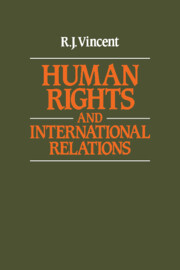1 - The idea of human rights
Published online by Cambridge University Press: 11 November 2009
Summary
The idea that human beings have rights as humans is a staple of contemporary world politics. International conventions, both global and regional, state it, at length and in relation to a large number of rights. People speaking for states proclaim it. Groups other than states assert it in its collective form, sometimes as a way of becoming states themselves, sometimes as a bid for recognition of their group-ness by states. Non-governmental organizations make its observance their raison d'être. Individuals in extremis appeal to it. Reporters presume it. And scholars try to make sense of it, the more so as more use is made of it in the world they seek to understand.
But it is not an obvious idea, however much its proponents may appeal to its supposed self-evidence as a way of entrenching it. As part of moral discourse, duty might seem more obvious, and is certainly more ancient, than right. Until quite recently, the utilitarian doctrine of the greatest happiness of the greatest number has been taken as a more obvious criterion of moral rectitude than the idea of individual rights. And, as a sociological point, it seems more obvious that individuals are gathered together as members of communities that are less than global in extent, than that they stand together as equal members of the society of all humankind.
- Type
- Chapter
- Information
- Human Rights and International Relations , pp. 7 - 18Publisher: Cambridge University PressPrint publication year: 1987

